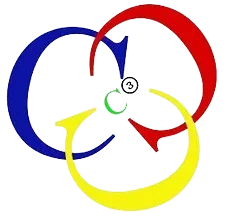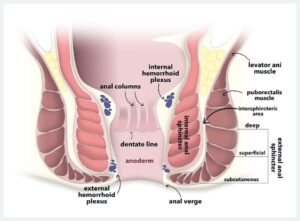Polycystic Ovarian Disease (PCOD) is one of the most common hormonal disorders faced by women of reproductive age today. It doesn’t just disrupt a woman’s physical health but also deeply affects her emotional and mental well-being. From irregular menstrual cycles, acne, weight gain, facial hair, to infertility—PCOD can take a serious toll on overall quality of life. Traditionally, many women have relied on hormonal pills and conventional treatments to manage their symptoms. However, a significant shift is now being seen: more and more women are turning to homeopathy for a natural and long-lasting solution to PCOD.
So, why this change?
The Shift from Hormonal Pills to Homeopathy
The primary reason behind this growing trend is the holistic and natural approach that homeopathy offers. While hormonal pills may provide temporary relief by artificially controlling menstrual cycles or hormone levels, they do not address the root cause of the disease. In fact, as soon as the medication is stopped, the symptoms often return—sometimes even more aggressively. Additionally, long-term use of hormonal pills can come with various side effects, such as:
- Weight gain
- Mood swings and depression
- Irregular spotting or bleeding
- Increased risk of blood clots
- Low libido
- Drug dependency
These side effects can be distressing and often push women to seek safer and gentler alternatives.
That’s where homeopathy steps in—not just as an alternative, but as a comprehensive system of healing that works with the body, not against it.
How Homeopathy Treats PCOD Differently ?
One of the most frequently asked questions is:
“Which treatment is better for PCOD—homeopathy or allopathy?”
The answer, in most chronic and constitutionally-rooted cases like PCOD, is undoubtedly homeopathy.
Homeopathy doesn’t look at PCOD as just a hormonal imbalance. It views the disorder through a multi-dimensional lens—taking into account the emotional, mental, genetic, and lifestyle-related factors that contribute to the condition. The treatment begins with a detailed case study, where every aspect of the patient’s health—past and present—is thoroughly assessed.
Based on this, a constitutional remedy is selected. This remedy stimulates the body’s natural healing mechanism, helping it correct the internal hormonal imbalances from within. Unlike allopathy, which often suppresses symptoms, homeopathy uproots the disease at its core, reducing the chances of recurrence and offering the possibility of permanent cure.
Which Hormone Is More in PCOD?
A common question among women is, “Which hormone is more in PCOD?”
In PCOD, there is typically a rise in androgens, or male hormones, especially testosterone. This hormonal surge leads to symptoms like excessive facial hair (hirsutism), acne, and male-pattern baldness. Additionally, there’s an imbalance in the LH (Luteinizing Hormone) and FSH (Follicle Stimulating Hormone) ratio, which disrupts ovulation and leads to irregular or absent periods.
Homeopathy works to gently regulate these hormonal fluctuations by balancing the hypothalamus-pituitary-ovarian axis. By restoring this delicate hormonal harmony, homeopathy brings back a natural menstrual rhythm, improves ovulation, and supports fertility—without introducing synthetic hormones into the body.
Can PCOD Be Cured Permanently?
Another frequently asked question is: “Can PCOD be cured permanently?”
The answer is yes. With the right homeopathic remedy, prescribed after a detailed case evaluation, PCOD can be cured from its root. Unlike conventional treatments that require long-term medication, homeopathy aims to permanently resolve the internal dysfunctions responsible for PCOD.
But it is important to understand that homeopathy is not a one-size-fits-all approach. The success of the treatment depends on selecting the most appropriate remedy based on the individual’s total symptom picture.
Most Common Homeopathic Medicines for PCOD
While remedies are individualized, here are some commonly indicated medicines used for PCOD:
- Pulsatilla: For delayed or suppressed periods, gentle emotional nature, and hormonal imbalances from puberty.
- Sepia: For women with bearing-down sensations, irritability, facial hair, and a feeling of indifference.
- Lachesis: Useful in left-sided ovarian cysts and intense PMS symptoms.
- Apis Mellifica: Often prescribed for right-sided ovarian cysts with stinging pains and bloating.
- Calcarea Carb: For obesity-linked PCOD, slow metabolism, and excessive sweating.
- Thuja Occidentalis: For oily skin, cystic acne, and a history of suppressed discharges.
- Natrum Mur: For silent grief, hair loss, acne, and irregular menstruation.
Again, these are not over-the-counter solutions. It is essential to consult a trained homeopathic doctor to find the best-suited remedy for you.
What Ccube Homeopathy Can Do for You ?
At Ccube Homeopathy, under the guidance of Dr. Rashmi Chandwani, we aim not just to manage PCOD symptoms but to completely eliminate the disorder from its root. Dr. Rashmi Chandwani adopts a deeply individualized and holistic approach for every patient. She understands that no two PCOD cases are the same—and hence, each treatment must be uniquely tailored.
Dr. Chandwani spends time understanding not only the physical symptoms but also the emotional struggles women face due to PCOD. This comprehensive analysis allows her to prescribe the most accurate constitutional remedy. Her treatment not only helps correct hormonal imbalances but also empowers women to regain their health, confidence, and reproductive well-being.
Over the years, Ccube Homeopathy has helped hundreds of women lead a life free from PCOD, without the side effects of conventional hormonal pills. If you are struggling with PCOD and are tired of temporary solutions, homeopathy could be the answer you’ve been looking for.
Let homeopathy heal you from the inside out—naturally, safely, and permanently.




